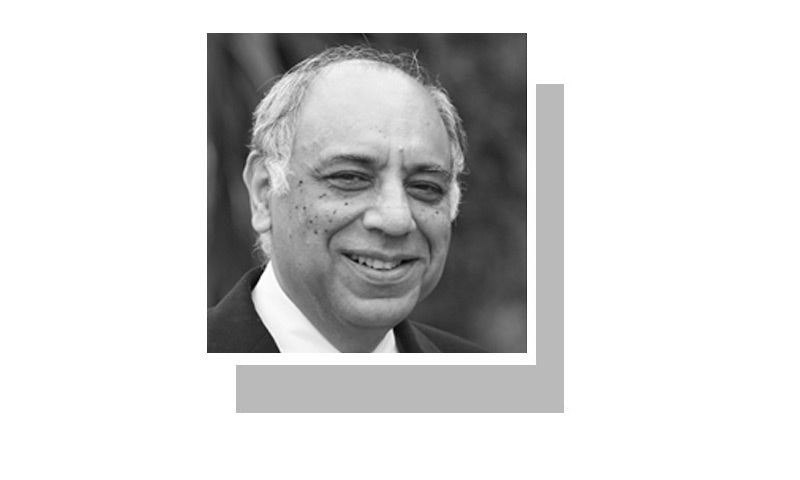
IT was back in the time of one of the dictators who was giving the Pakistani political system one of its fresh starts. He had given a message to the people to take advantage of new elections and replace dishonest incumbents by voting for ‘good’ people. At the time I was doing fieldwork in rural Sindh in a constituency where the incumbent was a known criminal and I put the proposition to a peasant asking him if he would vote for a ‘good’ candidate. The illiterate peasant took all of three seconds, looked me in the eye, and replied: “Saeen, will the good man get my son out of prison?”
Therein lies the insight that goes to the heart of the Pakistani political system. It is obvious to illiterate voters but escapes many a sophisticated analyst. In our deeply hierarchical society, most people are dependent on patrons who can act as intermediaries with the state — both to negotiate legitimate claims of the powerless and to protect them from exploitation. In such a context, there is no place for ‘good’ representatives — the more powerful and connected the patron, the better.
Not surprisingly, voters are indifferent to the criminality of the patron, nor are they concerned when their political representative hops from one party to another. In fact, it is considered a quality of a powerful patron that he is always aligned with the winning side in order to better leverage the organs of the state.
There’s no place for ‘good’ representatives — the more powerful and connected the patron, the better.
Analysts who use terms like ‘alas’, ‘if only’, and ‘unfortunately’ in their expositions of Pakistani politics and bemoan voter indifference to party-hopping miss the point entirely. It is not that but for a few favourable turns of fortune Pakistan would have been in a much more healthy political state. The problem is deeply structural. Pakistan has been enmeshed from the very beginning in a governance trap and there are no prospects of escape without structural interventions. The proof of the first part of this assertion is that no matter how many times in the past the system of governance has been given a so-called fresh start it has ended up not just exactly in the same dysfunctional state but in a worse one.
Anyone who doubts this claim needs only to look beyond his or her nose. Observe what is happening to Imran Khan’s party. The leader who promised to eliminate corruption in 100 days with a 100 honest people is furiously surrounding himself with the same old characters he was decrying a few months ago. One can infer how the structural imperatives of the electoral system are squeezing out the ‘good’ candidates.
In this structural scenario, it is incredibly naive to hear the opinion that Imran Khan deserves a chance because he is an untainted newcomer while everyone else has had a turn and that once he has had his stint the political system would attain a higher equilibrium. What is there to guarantee that after another messy round of misgovernance there would not be another newcomer claiming the right to have his or her turn at the wheel? Repeating the same process based on nothing more than hopes and prayers is not a sign of wisdom.
The governance trap described here is immune to the personality of the leader because the problem is structural. Neither the upright Ayub, the cosmopolitan Bhutto, the pious Zia, the liberal Musharraf, nor the pragmatic Sharif could effect any sustainable reform in governance that made a meaningful difference in the lives of the majority.
The major structural determinant of Pakistan’s governance system that is responsible for its pathological circularity is the reality that the protection of citizens is ensured by the same person who is meant to represent their electoral preferences. Only when these two functions are separated, rights being ensured by neutral and effective institutions and political preferences being channelled by elected representatives, can a semblance of the democratic ideal emerge.
A democratic political system rests on a foundation of law and order, impersonal entitlement to rights, and recourse to a fair system of justice. As long as citizens need to appeal to their political representatives to get their sons out of jail, their mothers admitted to hospitals, or find their nephews a job in a state-owned enterprise, we will continue to recreate the same dispensation no matter how many times the process is repeated.
Of course, it should be obvious that the institutional transformation mentioned here is very far in the future in Pakistan and cannot be hurried beyond a point. These transformations occurred in Europe over centuries of democratic struggle. They cannot be expected in countries without a tradition of mass struggle and where the system of governance is a legacy of a departing colonial power.
In our socioeconomic context, the only recourse is to lobby for changes in constitutional and electoral rules that can be leveraged to minimise the negative attributes of the present system.
For example, what is there to prevent introducing a rule that any candidate who switches political parties a year before a forthcoming election would have to sit out the election cycle? Why should parties be allowed to indulge in horse-trading in nominating candidates instead of instituting party primaries in which voters also have a say? Why do we have constituency delimitations in which the urban vote is underrepresented? Why should we be stuck with the first-past-the-post system in which spoiler parties can be introduced to fracture the vote? Why do we need a parliamentary system in which even a very competent leader cannot survive without a large number of local strongmen?
It is not really a surprise that very little attention has been devoted to discussing the set of electoral rules that can lead to distinct improvements in political representation. Rather, it is much easier and much more entertaining to focus on a horse race speculating about odds and handicaps and the shenanigans of the linesmen and the referees. It is such short-termism that portends a bleak future in which all we can hope for is more of the same if we are lucky.
The writer was dean of the School of Humanities and Social Sciences at Lums.
Published in Dawn, July 16th, 2018













































